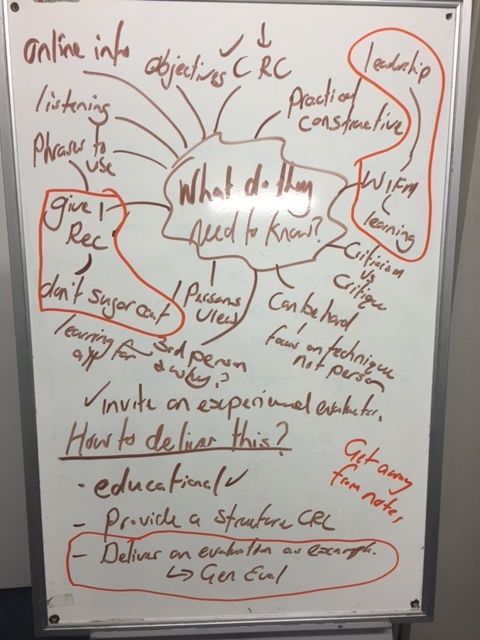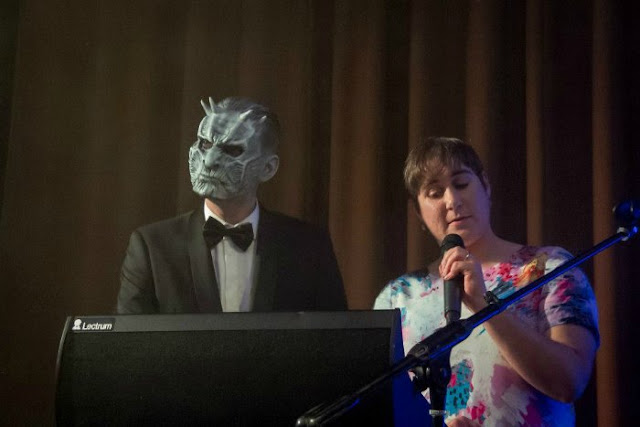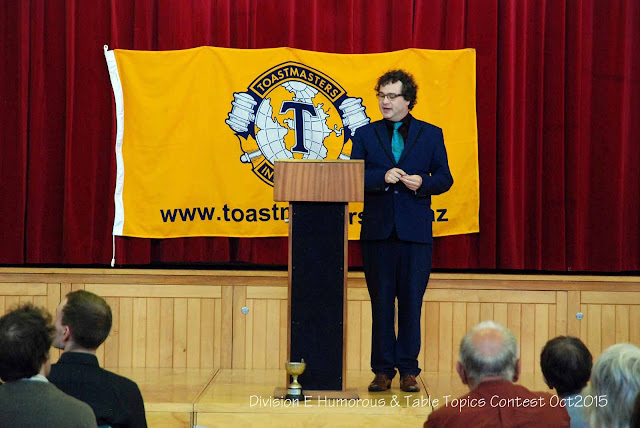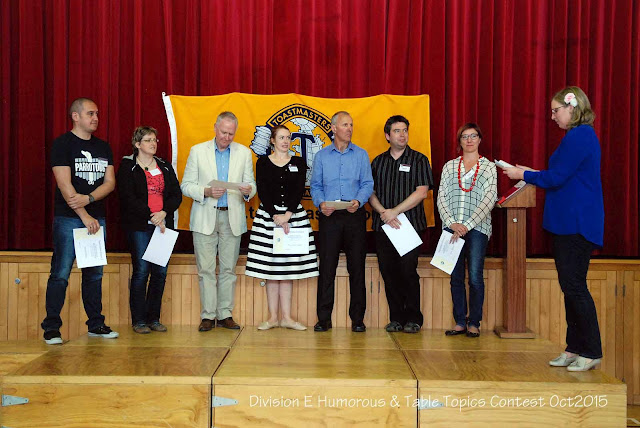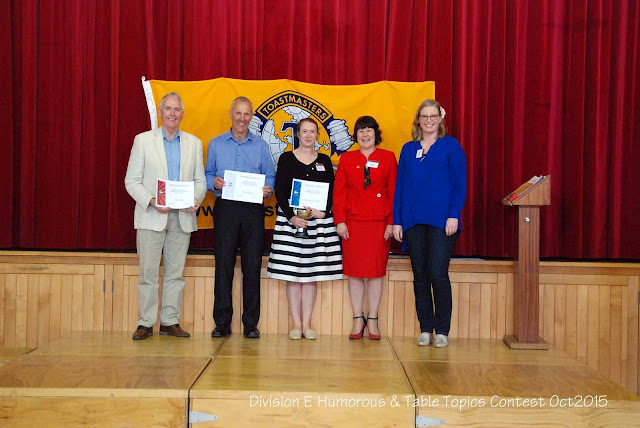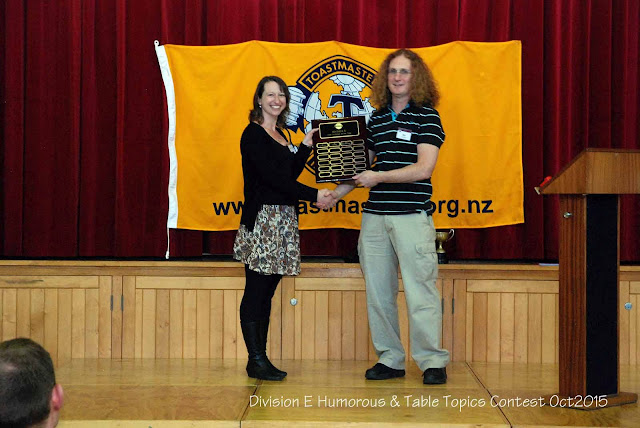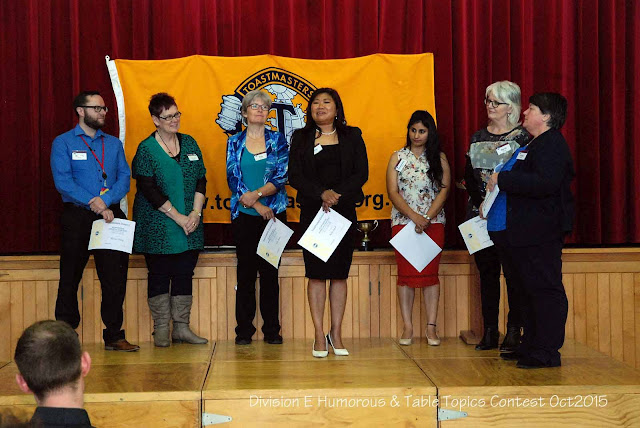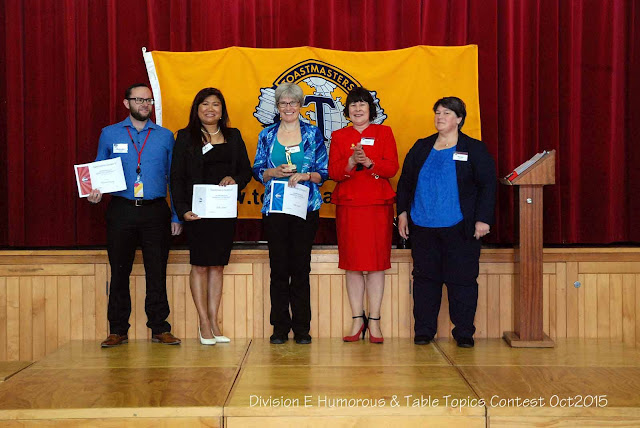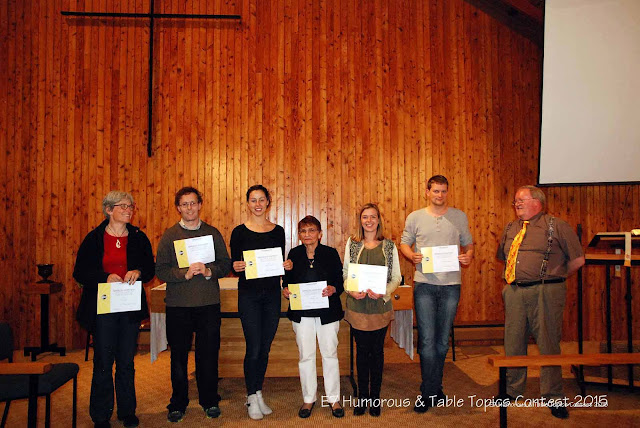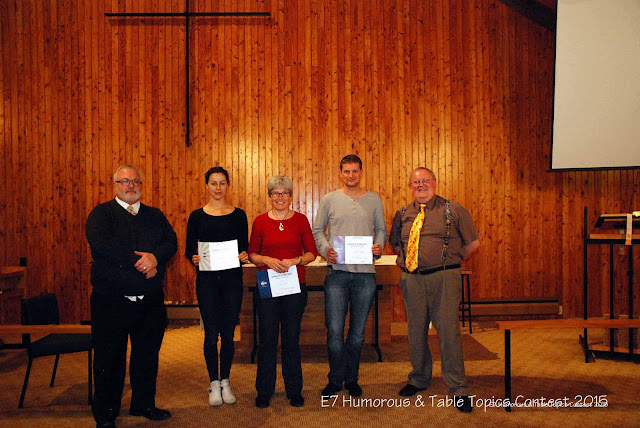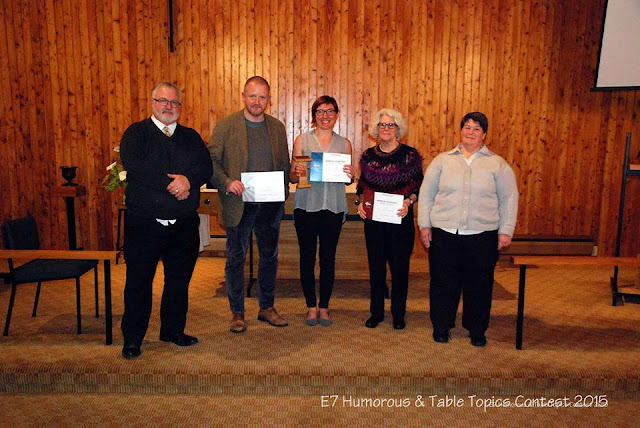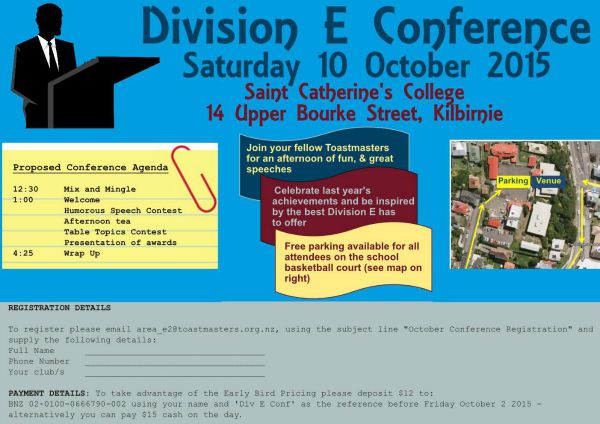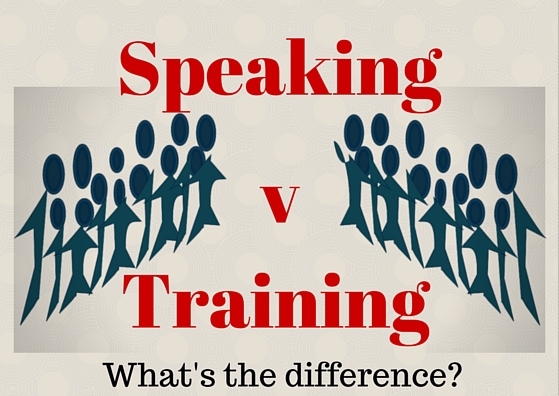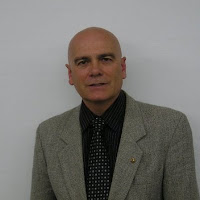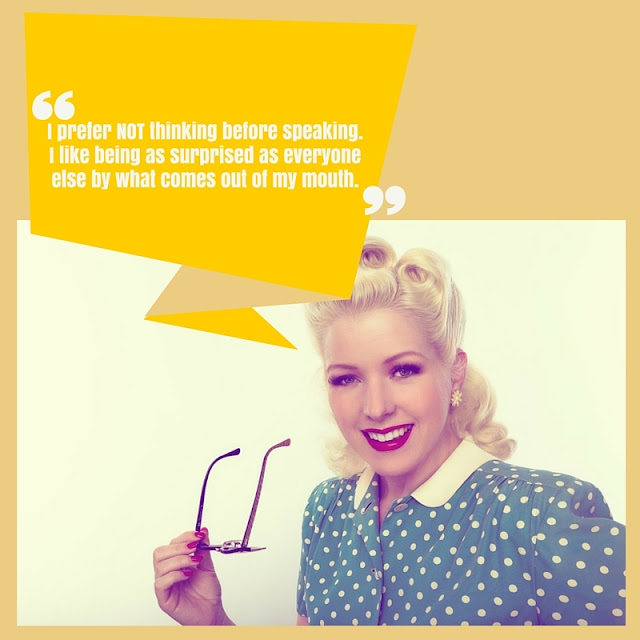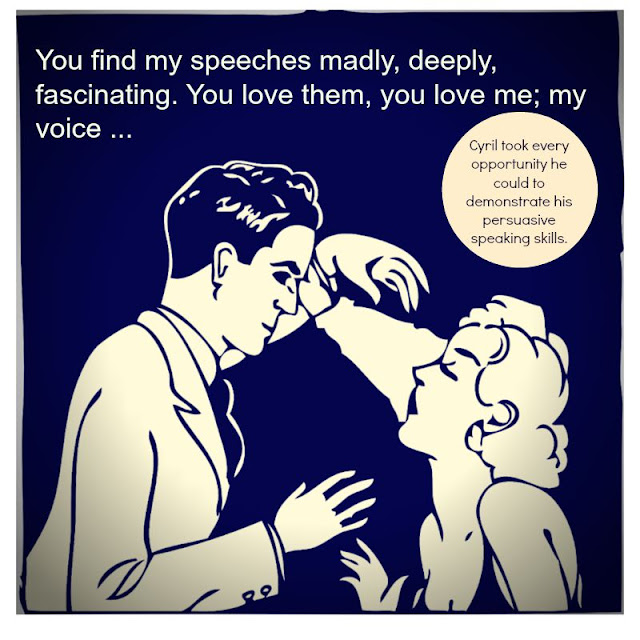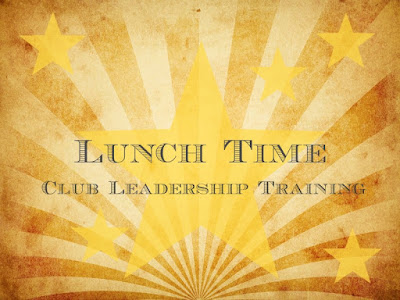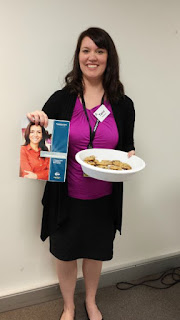The past week has been a very busy time for contests, with areas E2, E3 and E10 each holding a pair of successful contests.
The Area E2 Table Topics contest was hosted by Capital Chatterers and chaired by Matt Easton. Seven contestants responded to the question "What is the most important high school subject?". Some speakers fondly remembered their own high school education, and others shared stories from their children's experience, as they argued for a whole range of different subjects - maths, English, history, even PE. Contest winner Kevin Plant (Capital Breakfast) argued that the most important subject is the one not taught at school - life, and especially how to get along with people in the real world.
E2 Table Topics contest: L-R contest chair Matt Easton, 3rd place Alastair Finlay, 2nd place Sarndra Flay, 1st place Kevin Plant.
Business Breakfast Club hosted the E2 Humorous contest. Five humorous speakers, chaired by Sarndra Flay, entertained the audience with topics ranging from elevator etiquette and journalistic hijinks to personal ads and Shakespeare. The contest was won by Alastair Finlay (Vodafone Capital).
E2 Humorous contest: L-R Area Director Amanda Hillock, 1st place Alastair Finlay, 2nd place Katie Boyle, 3rd place EJ Willmot, contest chair Sarndra Flay.
The Humorous contest in Area E3 was hosted by Up Top Toastmasters. Contest chair Rachel Pointon ensured the meeting ran smoothly as the audience was entertained by two speeches about the unexpected things in life (what do sloths have to do with language difficulties? I'll leave you to guess). Billie Searle (High Noon Bankers) won first place.
E3 Humorous contest: L-R Area Director Sam Masters, 1st place Billie Searle, 2nd place Alex Carr, contest chair Rachel Pointon.
The Area E3 Table Topics contest was hosted by Taxing Toastmasters. After noting that it was "a battle of IRD vs bankers", contest chair Peter Anderson challenged the four contestants with the question "What are the reasons you choose to live in the Wellington region?". Contestants highlighted their favourite things about Wellington, including the accessible outdoors, the wildlife, and the cafes and theatres. The contest was won by Colleen Daymond-King (BNZ Harbour Quays) with her response about the joy of finding little blue penguins under her house.
E3 Table Topics contest: L-R Greer Mitchell, Federico Iglesias, 2nd place Dionne Needham, 1st place Colleen Daymond-King, contest chair Peter Anderson, Area Director Sam Masters
Advanced Wellington hosted contest night in area E10, with a well-attended meeting at which Denis McCord chaired both contests. Humorous contestants entertained the audience with speeches about the oddities of family life, the flag referendum, goat farming, and even failing eyesight. Deepshikha Vyas (Te Aro) won the Humorous contest.
E10 Humorous contest: L-R 1st place Deepshikha Vyas, 2nd place Lynne Russell, contest chair Denis McCord
After a break for some very good supper, E10 moved into the Table Topics contest. Five contestants were asked the thought-provoking question "Do you agree that the food you eat determines the way you live?". Responses were varied, ranging in emphasis from the pleasurable aspects of eating delicious food, to the importance of good nutrition. Contest winner Mitchell Bidois (Mid City) focused on the ways that well-planned meals can help to save time.
E10 Table Topics contest: L-R 3rd place Clark Ehlers, 2nd place Kerry Hilligan, 1st place Mitchell Bidois, contest chair Denis McCord
To catch up on the other Area contests, see the
contest timetable and the
Areas E6 and E1 contest writeup. And don't forget to
register for the Division conference to see your winners in action!








